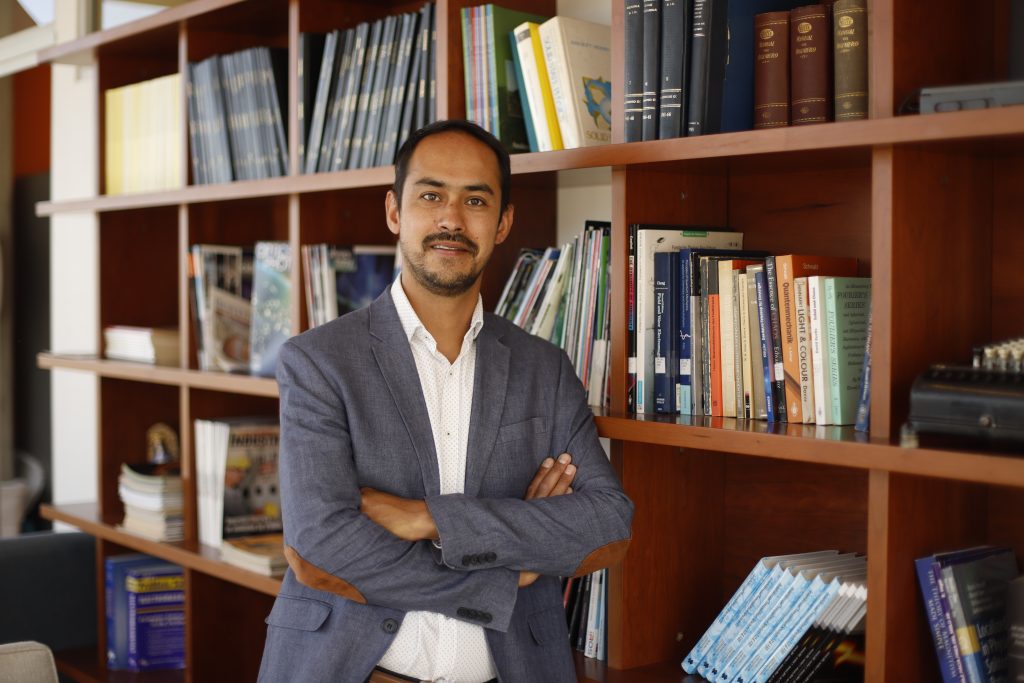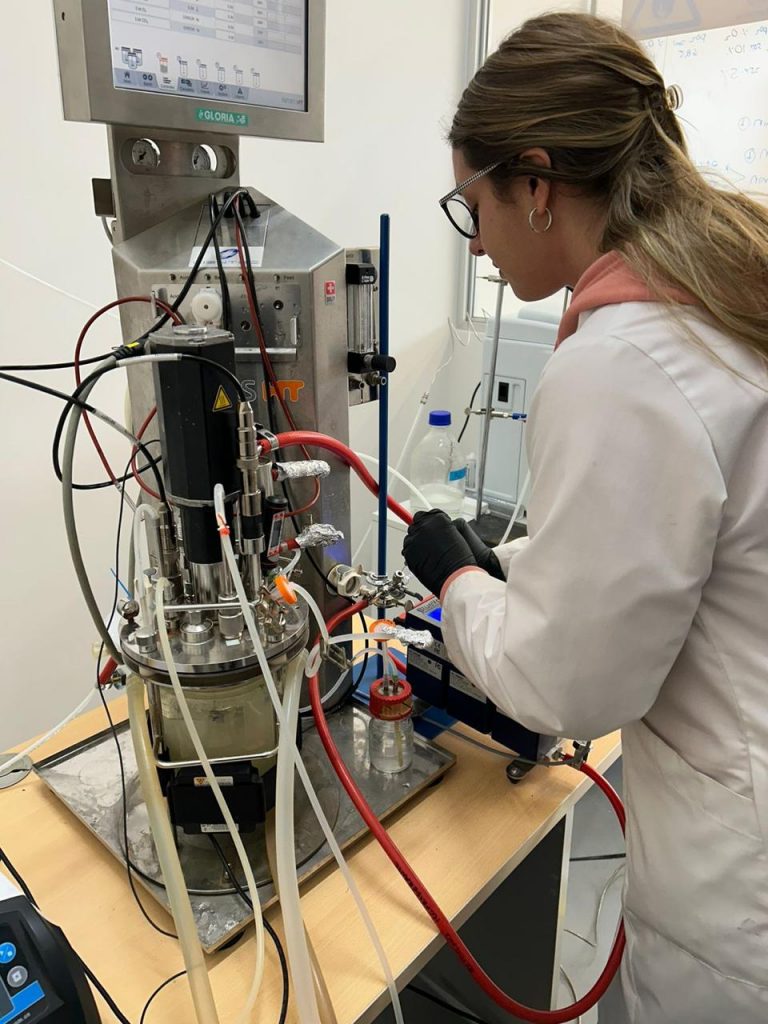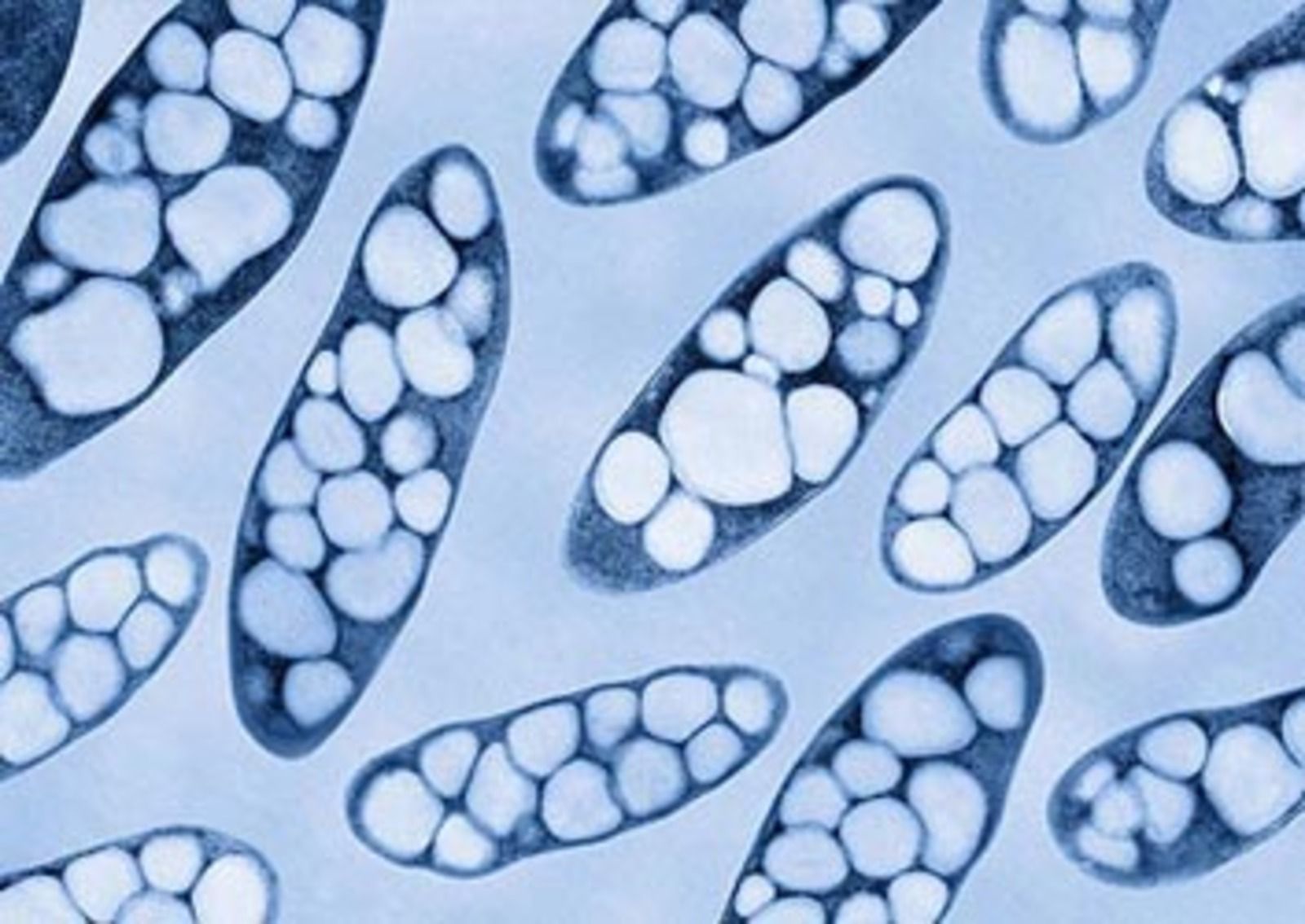In a collaborative effort, Chilean and international researchers led by GTech (from the School of Engineering and Applied Sciences) are seeking to produce chemical compounds from renewable sources such as green hydrogen and carbon dioxide.
The research is part of a collaborative work with national and international specialists, among them Professor Raul Conejeros, a Biochemical Civil Engineer from Pontificia Universidad Católica de Valparaíso; professor Alberto Vergara, an academic from the School of Engineering and Applied Sciences at Universidad de los Andes; and a team dedicated to the experimental characterization and genetic engineering of strains, in addition to collaborators from Spain, France, and the United States.
Felipe Scott, an academic from the School of Engineering and Applied Sciences of Universidad de los Andes, and his research team, have discovered through genomic sequencing, computational simulations, and laboratory experimentation, that a bacterium called Azohydromonas lata (formerly known as Alcaligenes latus) can be genetically edited to convert polluting gases such as CO₂ and green hydrogen into substances useful for industry, including isopropanol. This finding represents a breakthrough in applied biotechnology to combat the climate crisis, as pointed out by the academic in the report published for Future Congress.

Philip ScottProfessor of the Faculty of Engineering and Applied Sciences of the Universidad de los Andes.Scott was awarded a Fondecyt Regular 2025 for his project, "Increasing isopropanol and (R)-1,3-butanediol yields and titers from H2, CO2, and O2 via pathways orthogonalization and the coupling of enzyme/pathways properties to cell growth as a selection proxy,"with the aim of demonstrating that it is feasible to develop the technology and know-how necessary to produce methanol, an alcohol with wide industrial use and a precursor for the production of aviation fuels and solvents for the chemical industry, as he explained in an interview with Qué Pasa magazine in La Tercera.
This process not only reuses gases that would normally be released into the atmosphere and contribute to global warming, but could also help create fuels with a much smaller carbon footprint. In other words, they do not add further pollution to the environment.
"Our studies show that this type of technology could even become carbon-negative, to the extent that the electrical energy used for the production of green hydrogen is renewable and the rest of the inputs needed for production also have a low carbon footprint. To answer whether or not it will be carbon neutral implies the completion of a technical and economic evaluation of a hypothetical production plant, which is in progress," says the researcher.
The ultimate goal is to demonstrate that it is possible to produce isopropanol, an industrial alcohol that could be key to the manufacture of sustainable aviation fuels, through the biotechnological development of these bacteria. According to the researcher, the process could be very beneficial if renewable energy (solar or wind) is used to generate the green hydrogen that the bacteria need. This ensures that the whole process has minimal to no contamination.
The project is based on applying cutting-edge concepts in metabolic engineering —which seeks to improve cellular properties by modifying or reprogramming an organism's metabolic pathways to modify the expression of specific genes— such as the orthogonalization of metabolic pathways and the division of cellular labor, through computational simulations. Subsequently, these pathways will be implemented in bacteria by selection techniques that couple metabolic reactions to cell growth, using enzymes that do not exist in nature. As a case study, we will use the bacterium Azohydromonas lata, capable of converting hydrogen and carbon dioxide into a key intermediate (called 3-hydroxybutyrate), which will then be transformed into final products by genetically modified strains of Escherichia coli .
"This research aims at a sustainable alternative to traditional petrochemical processes. Through the biological conversion of carbon dioxide into industrially valuable compounds, it not only reduces the carbon footprint, but also opens up a new avenue for harnessing atmospheric carbon," says Scott. This proposal has a direct impact on the decarbonization of the chemical industry, the promotion of processes aligned with the circular bioeconomy, and the optimization of carbon capture and use.

Currently, Felipe Scott is also involved in other research, such as the ATE 220045 Ring project on bioproduction from carbon dioxide and hydrogen, the removal of atmospheric pollutants through biofilters, and new applications of metabolic engineering for industrial bioprocesses.
A Fondecyt Regular project recently awarded to Scott seeks to use artificial intelligence and analysis of large amounts of data to better understand these bacteria and further improve their performance. The academic has already led several studies on this type of technology and works with research centers in countries such as France, Japan, Spain, and the United States, always looking for new ways to use science to create sustainable solutions.

